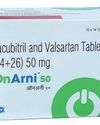
The advent of digital technology and digitisation of healthcare-related information has given us unprecedented access to a large reserve of data. We are sitting over a data field that when processed can provide valuable insights into disease incidence, progression and treatment outcomes and even help us predict disease epidemics.
Big data analysis helps us deduce evidence-based information to improve efficiency, reduce healthcare delivery costs and arrive at best practices to treat a disease. It can also give a huge boost to clinical research and precision drug development. Market research indicates that the global big data analytics in healthcare market size which was valued at $ 16.87 billion in 2017, is projected to reach $67.82 billion by 2025. This accounts for a growth of a CAGR 19.1% from 2018 to 2025.
The industry is already processing over 30 billion transactions a year by producing zettabytes of data taken from EMRs, medical imaging, medical devices, etc. Much like in many other industries, this tool today is being used to revolutionise healthcare, improve service delivery, structure the research, enhance diagnosis/imaging results, and generate patient data outside clinical context, behaviorual data, wellness information, environmental data and public health data. All of these constitute a patient digital health trial.
Here is how big data is revolutionising healthcare:
Cost reduction
Bu hikaye Healthcare Radius dergisinin February 2020 sayısından alınmıştır.
Start your 7-day Magzter GOLD free trial to access thousands of curated premium stories, and 9,000+ magazines and newspapers.
Already a subscriber ? Giriş Yap
Bu hikaye Healthcare Radius dergisinin February 2020 sayısından alınmıştır.
Start your 7-day Magzter GOLD free trial to access thousands of curated premium stories, and 9,000+ magazines and newspapers.
Already a subscriber? Giriş Yap

KIMSHEALTH launches electrophysiology lab with 3D mapping
'ENSITE X' is the first of its kind in Kerala and the third in India enabling precise identification, mapping, and targeting the abnormal electrical activities in the heart.

Molbio boosts Goa's healthcare system with CSR initiatives
The company has donated four state-of-the-art Advanced Life Support (ALS) ambulances and two hearse vans for National Highway emergencies

USV introduces affordable heart failure medication
This cost-effective option addresses the rising cases of heart failure in India, offering lifesaving care to millions of patients who need it the most.

City Imaging & Clinical Labs to expand services to 50 hospitals
The company is currently associated with 10 hospitals, providing comprehensive lab management services, including 24/7 in-house phlebotomy and lab testing.

Oncare raises $1 million in seed funding, to set up 10 units
Oncare has raised $1 million in a seed funding round led by Huddle Ventures. It plans to deploy the raised capital to expand its operations to 10 new centers.

Nutrabay forays into Ayurvedic supplements market with Shilajit
Nutrabay's aims at gaining market share from the existing ayurveda supplements market with a distinctive product proposition and education about the benefits of Shilajit.

INDIA'S PREPAREDNESS ON HEALTHCARE-ASSOCIATED INFECTIONS: A GROWING FOCUS ON PATIENT SAFETY
The country's diverse healthcare landscape necessitates a flexible and multifaceted approach to infection control that can be adapted to various settings and resource levels.

TRANSFORMING CARDIAC SURGERY: HOW AI IS REVOLUTIONIZING PATIENT CARE AND OUTCOMES
Dr. Swarup Swaraj Pal shared his insights on the current state and future prospects of AI in cardiac procedures.

BEYOND THE LAB: THE CRITICAL ROLE OF LOGISTICS IN INDIA'S PHARMACEUTICAL INDUSTRY
As India continues to expand its role in the global pharmaceutical market, the importance of a robust, reliable, and innovative logistics infrastructure cannot be overstated.

LIFESTYLE DISEASES IN CHILDREN: A WAKE-UP CALL FOR A HEALTHIER GENERATION
In today's fast-paced world, children face an unexpected enemy: lifestyle diseases. Conditions like obesity, Type 2 diabetes, and hypertension are now affecting our youth. What's causing this shift, and how can we combat it?